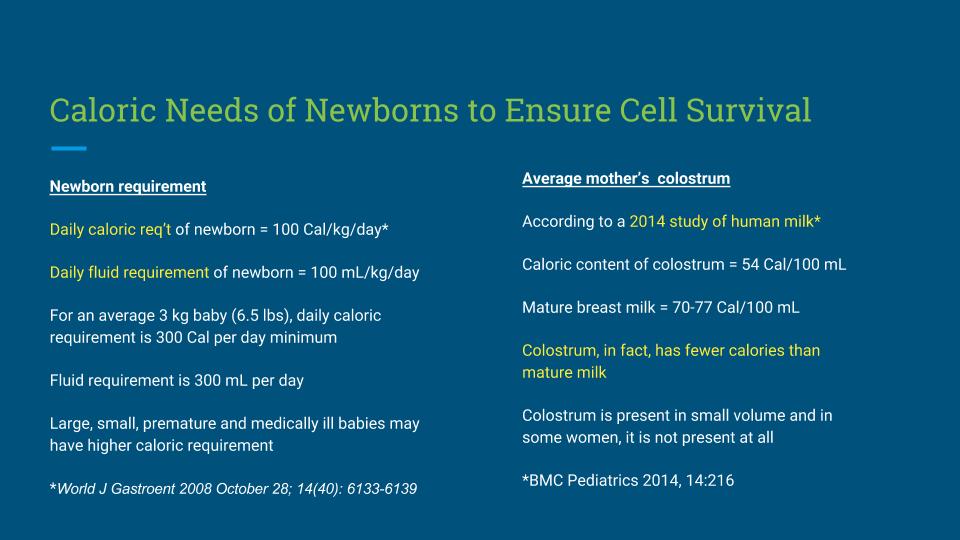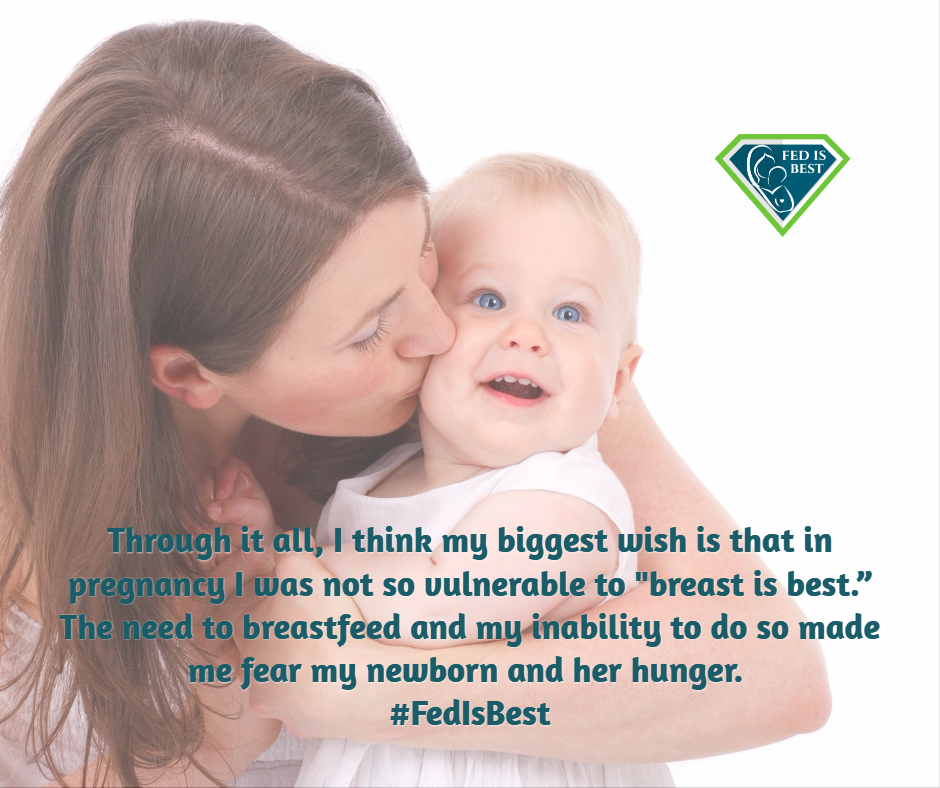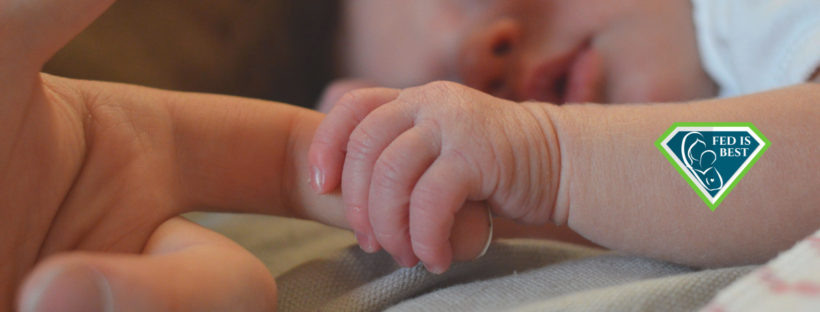I was diagnosed with Post Traumatic Stress Disorder from my daughter’s traumatic birth. She was born in September 2016 and I was diagnosed in December 2016. I undertook Eye Movement Desensitization and Reprocessing, a type of therapy designed to alleviate the distress associated with traumatic memories, which caused severe anxiety and panic. The need to breastfeed was very triggering. The thought of not breastfeeding was very triggering — essentially, I felt like a horrible mom and I was struggling to feed my baby.
During my daughter’s birth, I lost forty percent of my blood. About twenty minutes after she was born, I went into shock and had to be revived. I have very limited memory of her birth or the hours after it.
Prior to my daughter’s birth, I got very sucked into “breassure”. I am a pediatric nurse practitioner and have patients who are formula fed. I also was exclusively formula fed, so I KNEW formula was safe and totally healthy for babies. But that part of my brain seemed to turn off. I HAD to breastfeed. I did not even want formula in my house before going into labor, as I had been told it would be “too tempting.” Even as I went into shock, I reminded my husband to feed our daughter with a finger or syringe rather than a bottle to avoid the infamous nipple confusion. It was not until about a month ago that he told me he fed her a bottle in the nursery, as he was afraid I would be upset.
After being revived, I did not even get to see my daughter until after I was stable and in the postpartum unit. I lost a lot of blood and I felt like HELL. I truly cannot explain it. I was so weak and so exhausted. Still, the nurse on the floor brought my daughter to me so I could feed her. She gave me NO instructions and did not acknowledge what my physical and emotional limits were, while attempting to breastfeed my newborn baby. Still, I believed that I, and only I, could be the source of food for my child. I cannot explain how haunting and distressing that thought was. I desperately needed someone to care for me. My blood volume was low and very dilute. But still, I HAD to feed her. Otherwise, what kind of mother was I?
The Lactation Consultant gave me a nipple shield the next morning. It helped my daughter immensely. My daughter had to go to the NICU every few hours for an hour or more to get IV antibiotics for a very serious infection, which complicated breastfeeding. They gave me a pump to use during those times. I decided quickly that pumping was much more reassuring for my analytical and anxious mind. The only problem? I produced practically nothing. Fifteen minutes on both sides produced eight mL. How in the world could this sustain the life of my precious child, especially in light of her enduring a thirty-four hour labor AND chorioamnionitis. I knew it wasn’t enough, and the thought of it brought me immediate panic attacks.

I think, looking back, the worst part (and there were some TERRIBLE parts) was that when I saw my daughter, instead of love, I felt PANIC. I was terrified of how I was failing her.
There were many people in the hospital who were overly optimistic about my medical situation. My own doctor told me that “breastfeeding would be a breeze,” in spite of my severe anemia. Only the neonatologist was truly honest. She told me that I would need to pump and supplement for three to four weeks before my milk would truly come in, if it did at all. In some ways, that honesty gave me the freedom I needed to feed my daughter in a way that worked for us both. It was still a wrenching decision though. Who endures what I did to do anything less than the best for their child?
Thankfully, my husband and parents were supportive. I got a few side glances from the postpartum nurses here and there for formula feeding, but I was so exhausted that I did not care.
I would like to pretend that I could let it rest at that, but since I truly believed that breast was BEST, I thought I was a terrible mom. For weeks and months, this went on. The thing is, I liked formula feeding. It allowed my husband to do almost all the night feeds before I received a blood transfusion when my daughter was five days old. It allowed us to split the feeds evenly after that. It allowed him or family to care for our daughter easily when I spent hours getting iron infusions three times a week. She had no issues with formula and she loved her feeding time with bottles. But I felt so incredibly guilty for formula feeding! At one point, I even tried to relactate. It was totally unproductive. Through all of my pumping, I never produced more than fifty mL a day. Of course, I know now that a post-partum hemorrhage is a risk factor for inadequate breast milk supply. I never had more than a mildly bloated feeling in my breasts, certainly nothing like how I have heard others describe engorgement.
Through it all, I think my biggest wish is that in pregnancy I was not so vulnerable to “breast is best.” The need to breastfeed and my inability to do so made me fear my newborn and her hunger.

HOW YOU CAN SUPPORT FED IS BEST
There are many ways you can support the mission of the Fed is Best Foundation. Please consider contributing in the following ways:
- Join the Fed is Best Volunteer group to help us reach Obstetric Health Providers to advocate for counseling of new mothers on the importance of safe infant feeding.
- Make a donation to the Fed is Best Foundation. We are using funds from donations to cover the cost of our website, our social media ads, our printing and mailing costs to reach health providers and hospitals. We do not accept donations from breast- or formula-feeding companies and 100% of your donations go toward these operational costs. All the work of the Foundation is achieved via the pro bono and volunteer work of its supporters.
- Share the stories and the message of the Fed is Best Foundation through word-of-mouth, by posting on your social media page and by sending our resources to expectant moms that you know. Share the Fed is Best campaign letter with everyone you know.
- Write a letter to your health providers and hospitals about the Fed is Best Foundation. Write them about feeding complications your child may have experienced.
- Print out our letter to obstetric providers and mail them to your local obstetricians, midwives, family practitioners who provide obstetric care and hospitals.
- Write your local elected officials about what is happening to newborn babies in hospitals and ask for legal protection of newborn babies from underfeeding and of mother’s rights to honest informed consent on the risks of insufficient feeding of breastfed babies.
- Send us your stories. Share with us your successes, your struggles and every thing in between. Every story saves another child from experiencing the same and teaches another mom how to safely feed her baby. Every voice contributes to change.
- Send us messages of support. We work every single day to make infant feeding safe and supportive of every mother and child. Your messages of support keep us all going.
- Shop and Fed is Best Foundation will earn cash back! We hope to develop our online safe infant feeding classes with these funds.
- If you need support, we have a private support group– Join
Thank you so much from the Founders of the Fed is Best Foundation!

One thought on “My Inability To Breastfeed Made Me Fear My Newborn And Her Hunger”